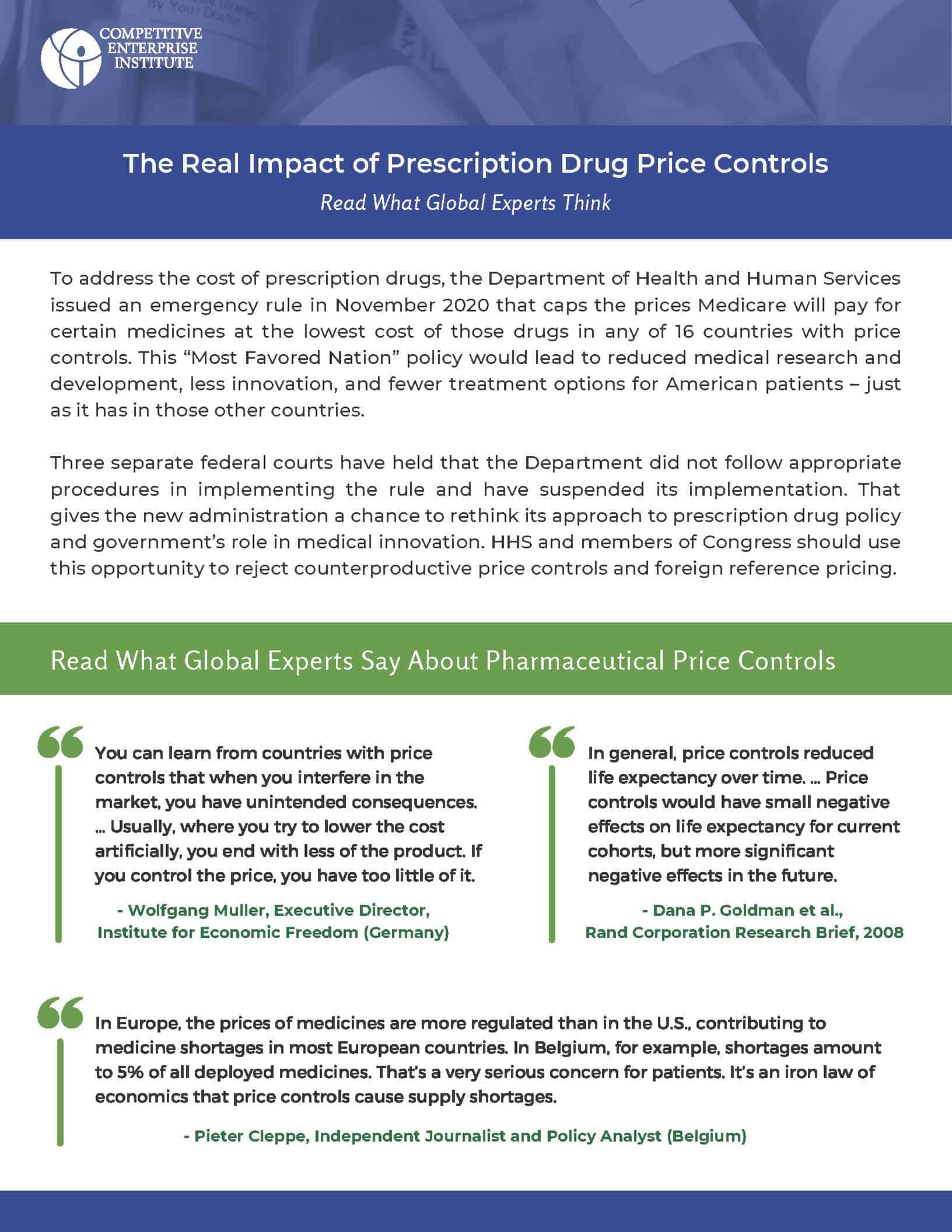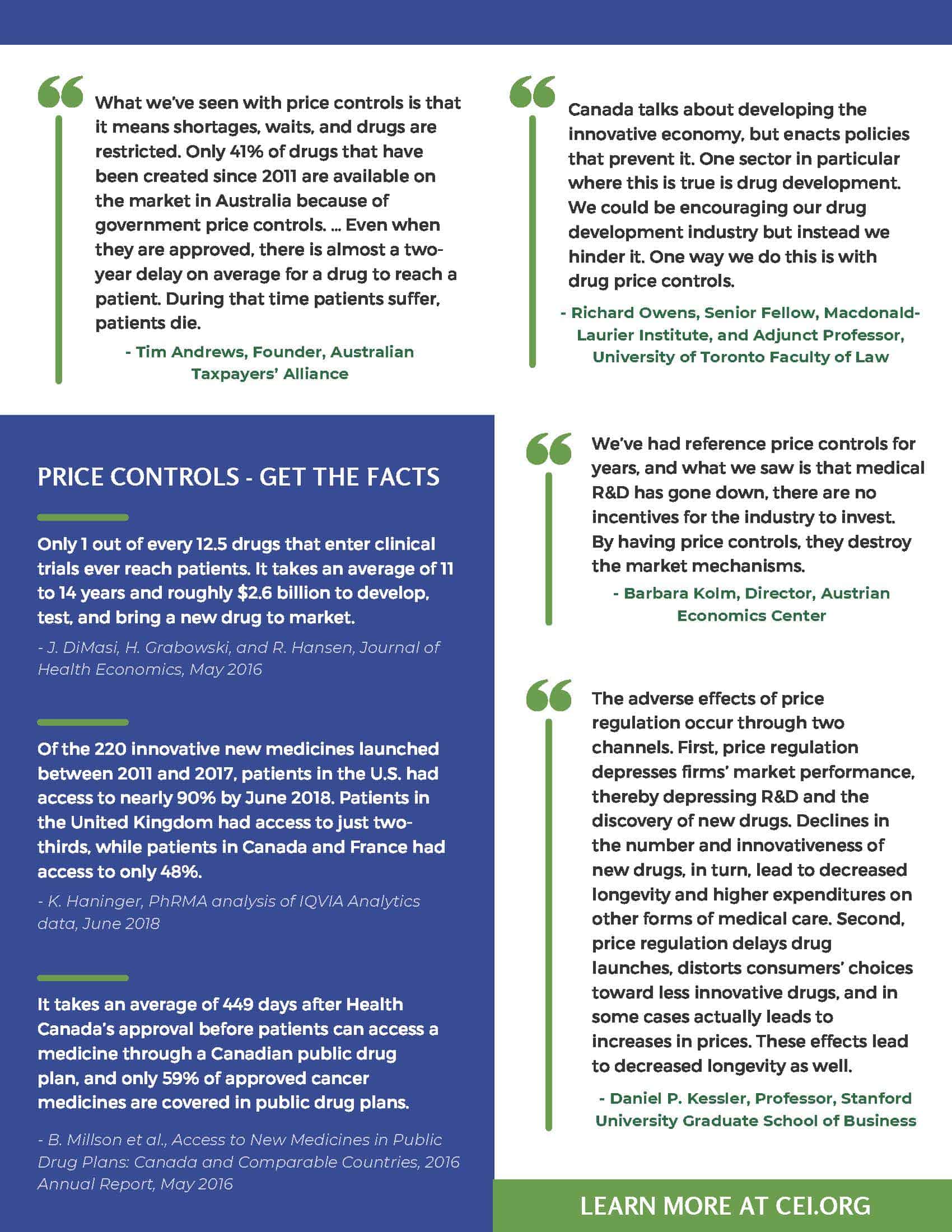Prescription Drug Price Controls are a Trump Legacy Worth Eradicating

Photo Credit: Getty
During his first month in office, President Biden has seemingly been more interested in eradicating Donald Trump’s legacy than pushing his own proposals, though often to widespread applause from Democrats in Congress. Still, there is one policy leftover from the Trump administration that Democrats seem eager to preserve: health care price controls, especially for prescription drugs.
Pharmaceutical prices are a significant concern for many Americans, which makes them a popular target for lawmakers. In recent years, both Democrats and Republicans have introduced legislation to cap the prices Medicare, Medicaid, health insurers, and patients pay for prescription drugs. And Donald Trump’s administration issued a string of proposals and executive orders attempting to do the same.
In November 2020, the Department of Health and Human Services (HHS) and its Centers for Medicare and Medicaid Services (CMS) issued an emergency rule that would have capped the prices that Medicare pays for certain drugs at the lowest price charged for those products in any of 16 countries—all of which impose price controls. That sleight of hand let the Trump administration claim it wasn’t imposing price controls. Instead, the use of foreign reference pricing simply let other countries impose price controls on America’s behalf.
In late December, three separate federal courts all held that CMS failed to follow appropriate procedures when issuing the so-called Most Favored Nations reference pricing rule. One of those courts further held that CMS lacked statutory authority to adopt price controls in that way. But all three of them suspended implementation until CMS could go back to the drawing board and start over.
With a significant base of support in the Biden administration and on Capitol Hill, it’s only a matter of time before the proposal resurfaces. Sen. Jeff Merkley (D-OR) introduced a bill in the last Congress that would have required CMS to adopt a price control policy like the one outlined in Trump’s Most Favored Nation rule. And he is expected to push the policy this week, during confirmation hearings for President Biden’s Secretary of HHS nominee, Xavier Becerra. Merkley will no doubt also push for enactment of the legislation in coming months.
But whether they are imposed by statute, rulemaking, or executive order, price controls and foreign reference pricing are bad policies. Imposing price controls on pharmaceuticals may lower drug spending in the short run, but would result in sharply lower investment in medical research and development and reduce the number of innovative new medicines that reach the market in coming years.
Many politicians seem to think health care is special, but medicine and medical research are not immune to the laws of economics. The high prices charged for some innovative new drugs are a direct result of the huge cost of medical innovation, testing, and navigating the complex Food and Drug Administration (FDA) approval process. It takes an average of over $2.5 billion and a dozen years or more to take a new drug candidate from the laboratory through clinical testing and FDA approval. Even then, 11 out of every 12 new drugs fail to secure approval, but pharmaceutical companies spend tens billions of dollars testing them each year.
Capping prices and reducing the prospects for profitability even further would inevitably lead to less medical research and development and, as a result, fewer new drugs reaching patients in the future.
It’s been proven true time and again, wherever price controls have been imposed. In country after country, study after study has found that when you try to lower prices artificially, you get less of the product you’re regulating. When that product is prescription drugs, the end result is lower investment in medical research and development, fewer innovative new treatments, and real human suffering. You can read more about the long-term effects in the document accompanying this blog post.
Adopting a policy known to reduce innovation is rarely a good idea. But it would be disastrous in the middle of global pandemic, when the availability of breakthrough drugs and vaccines may literally mean life or death for millions of Americans.
To download the infographic below, click here.

